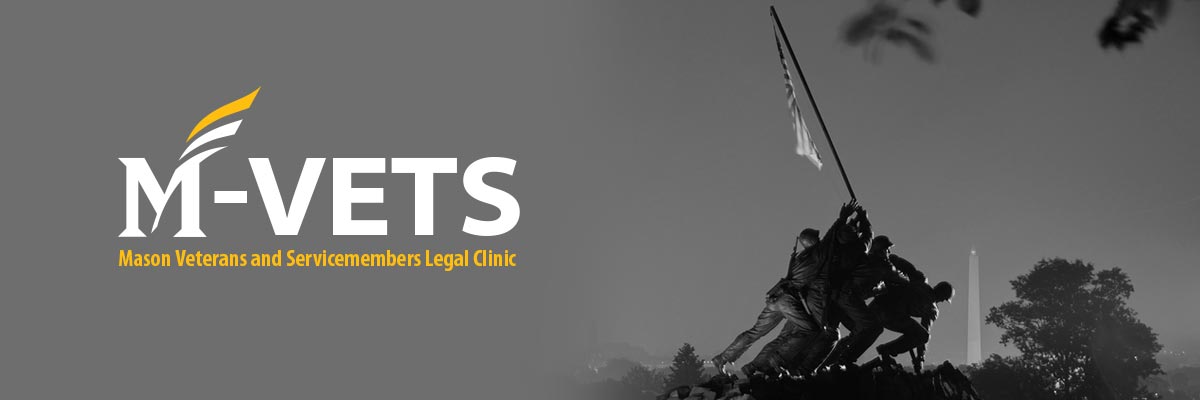
By Summer 2019 M-VETS Student-Advisor Lillia J. Damalouji
Stolen valor, or the act of falsely claiming military service or displaying falsely-earned military decorations, medals, or badges, is an extensive problem throughout the United States that has sparked a myriad of governmental responses. In a year-long nationwide operation jointly conducted by the Department of Justice and Department of Veteran’s Affairs (“VA”) entitled “Operation Stolen Valor”, investigators uncovered over $1.4 million in fraudulent VA claims made in the Northwest Region alone.[1] Throughout the United States, this number is likely much higher. Also called the “phony war hero phenomenon,”[2] stolen valor is not only costing the United States millions of dollars in fraudulently-claimed benefits, but is also tarnishing the prestige of these decorations for the countless servicemembers who rightfully earned them.
In attempt to combat this abuse, Congress enacted the Stolen Valor Act of 2005, which penalized those who displayed unearned medals and badges.[3] The Stolen Valor Act, signed into law by President George H.W. Bush “amends the federal criminal code to expand the prohibition against wearing, manufacturing, or selling military decorations or medals without legal authorization”[4] and “prohibits falsely representing oneself as having been awarded any decoration or medal authorized by Congress for the Armed Forces or any of the service medals or badges” [5] in § 704(a). Under this Act, one who fraudulently represented the receipt of military decorations or honors was subject to either a fine or imprisonment for up to six months, or both in § 704(b).[6] One who fraudulently represented the receipt of a Congressional medal of honor, a distinguished-service cross, a Navy cross, an Air Force cross, a silver star, a Purple Heart, or a combat badge was subject to either a fine or imprisonment for up to one year, or both.[7]
Fraudulent Representations about Receipt of Military Decorations Held Unconstitutional
While this act attempted to protect the reputation of these decorations, it was met with claims of unconstitutionality under the First Amendment right to the freedom of speech. In United States v. Alvarez, Xavier Alvarez lied in announcing that he was a retired marine who earned the Congressional Medal of Honor and was, in turn, indicted under the Stolen Valor Act of 2005.[8] On appeal, the United States Courts of Appeal for the Ninth Circuit found the Act invalid under the First Amendment and reversed Alvarez’s conviction.[9] The Ninth Circuit, in C.J. Kozinski’s concurrence in the denial of rehearing en banc, suggested that “without robust protections of the First Amendment, the white lies, exaggerations and deceptions that are an integral part of human intercourse would become targets of censorship.”[10]
During this same time, the United States Courts of Appeal for the Tenth Circuit found the Stolen Valor Act of 2005 constitutional in its United States v. Strandlof opinion. In the aforementioned case, Strandlof was indicted under the Stolen Valor Act for claiming to have received a Purple Heart and Silver Star while serving in the Iraq War.[11] In a lengthy analysis that explored over 50 years of Supreme Court history, this court held that the Stolen Valor Act was facially constitutional and, in accordance with Supreme Court precedence, reasoned that “the Act prohibits only knowingly false statements of fact, it provides breathing space for valuable speech, and it reaches no farther than is necessary to protect the legitimate interest involved.”[12] Judge Tymkovich, in his opinion, outrightly disagreed with the Ninth Circuit’s holding in United States v. Alvarez, reasoning that contrary to the Ninth Circuit’s opinion, upholding the Stolen Valor Act would not “lead America down a slippery slope where Congress could criminalize an appallingly wide swath of ironic, dramatic, diplomatic and otherwise polite speech.”[13]
United States v. Alvarez, on certiorari with the United States Supreme Court, ultimately resolved this Circuit split, holding that the Stolen Valor Act of 2005 was an unconstitutional abridgement of the freedom of speech under the First Amendment. This holding was rendered on the grounds that the Act did not satisfy the “exacting scrutiny” approach when the Court assessed content-based restrictions on free speech.[14] Put simply, no clear showing of the necessity of the Act existed as required under the exacting scrutiny approach.[15] In light of the Supreme Court’s rule, both the opinion and judgment rendered in United States v. Strandlof were vacated.[16] With this holding, the Stolen Valor Act of 2005 became an unconstitutional statute.
The Enaction of the Stolen Valor Act of 2013
In response to the Alvarez decision, Congress enacted the Stolen Valor Act of 2013, signed into law by President Barack Obama in 2013.[17] This Act “amends the federal criminal code to rewrite provisions relating to fraudulent claims about military service subject to a fine, imprisonment for not more than one year, or both to an individual who, with the intent to obtain money, property, or other tangible benefit, fraudulently holds himself or herself out to be a recipient of a Congressional Medal of Honor, a distinguished service cross [etc.]…”[18] This Act was drafted, with support from the American Legion, to include “the legal language in effort to meet the Supreme Court’s objections to the old [2005] Stolen Valor Act.”[19] While written to serve as a constitutional replacement to the 2005 Stolen Valor Act, this Act too, was met with backlash in United States v. Swisher.
Unauthorized Wearing of Military Decorations Held Unconstitutional
The Stolen Valor Act was further degraded by the Ninth Circuit’s ruling in United States v. Swisher, which found that the reasoning in United States v. Alvarez, which invalidated § 704(b), the fraudulent representation of the receipt of military decorations, extends to § 704(a), which criminalizes the unauthorized wearing of military medals.[20] Appellant Swisher, who was indicted on four violations of federal law, submitted a fraudulent DD-214 to the VA in attempt to acquire additional benefits.[21]
This case overturned the United States v. Perelman ruling, decided two months after the Supreme Court issued its opinion in Alvarez, which narrowly construed § 704(a) as criminalizing only the unauthorized wearing of medals “when the wearer intends to deceive”.[22] Furthermore, Perelman did not apply the “exacting scrutiny” analytic framework because this section of the Stolen Valor statute did not criminalize speech, but criminalized “the harmful conduct of wearing a medal without authorization and with intent to deceive,” and was, therefore, a constitutionally-permissible provision.[23]
The holding in Swisher therefore, overturned § 704(a) of the Stolen Valor Act rendering this section unconstitutional under the First Amendment and noting the Perelman decision as moot.
Implications of Swisher and a Path Forward
These cases not only pose a concern for preserving the honor of these prestigious awards and medals, but also highlight the uncertainty of the scope of the First Amendment itself. With the most recent holding in Swisher, the Supreme Court has made clear that no distinction between conduct and speech holds significance, rather, the statute itself and the legislative purpose in regulating are central to the analysis.[24] These two provisions of the Stolen Valor Act were determined to violate the protections guaranteed under the First Amendment. In turn, Americans enjoy the freedom to both make false representations of their service and wear unearned medals and decorations, contrary to the intended protections of the Stolen Valor Act. Though, faith must not be lost as Congress is attempting to amend this Act in both the House and Senate, to provide penalties for the sale of any Purple Heart awarded to any member of the Armed Forces.[25] Servicemembers and veterans who have rightfully earned these medals should enjoy the full honor that is attached to these decorations; now is the time for Congressional action to restore the protections intended by the Stolen Valor Act to preserve the rights and honors of these medals now and in the future.
[1] Dept. of Justice, Northwest Crackdown on Fake Veterans in “Operation Stolen Valor,” Sept. 21, 2007, https://www.justice.gov/archive/usao/waw/press/2007/sep/operationstolenvalor.html
[2] Id.
[3] 18 U.S.C. § 704.
[4] Stolen Valor Act of 2005, S. Rep. No. 1998-109 Summary (2006).
[5] Id.
[6] 18 U.S.C. § 704(b).
[7] 18 U.S.C. § 704(c); 18 U.S.C. § 704(d).
[8] United States v. Alvarez, 567 U.S. 709, 714 (2012).
[9] See id.
[10] United States v. Alvarez, 638 F.3d 666, 673 (9th Cir. 2011).
[11] United States v. Strandlof, 667 F.3d 1146, 1152 (10th Cir. 2012).
[12] 667 F.3d. at 1167 citing Gertz v. Robert Welch, 418 U.S. 323, 349 (1972).
[13] 667 F.3d. at 1155.
[14] 567 U.S. at 724.
[15] 567 U.S. at 729.
[16] United States v. Strandlof, 684 F.3d. 962, 963 (10th Cir. 2012).
[17] Stolen Valor Act of 2013, H.R. Rep. No. 258-113, Summary (2013).
[18] Id.
[19] The American Legion, Stolen Valor Act of 2013 Signed into Law, Jun. 4, 2013, https://www.legion.org/legislative/215862/stolen-valor-act-2013-signed-law
[20] United States v. Swisher, 811 F.3d. 299, 303-04 (9th Cir. 2016).
[21] 811 F.3d at 305.
[22] 811 F.3d at 310 citing United States v. Perelman, 695 F.3d 866, 870 (9th Cir. 2012).
[23] 811 F.3d at 310 citing 695 F.3d at 871.
[24] See Aaron P. Bretcher, Thinking about Speaking and Doing in the Ninth Circuit: United States v. Swisher, Feb. 25, 2016, https://www.americanbar.org/groups/litigation/committees/civil-rights/practice/2016/thinking-about-speaking-and-doing-in-the-ninth-circuit-united-states-v-swisher/.
[25] Private Corrado Piccoli Purple Heart Preservation Act, S. Rep. No. 122-116 (2019); Private Corrado Piccoli Purple Heart Preservation Act, H.R. Rep. No. 2911-116 (2019).
